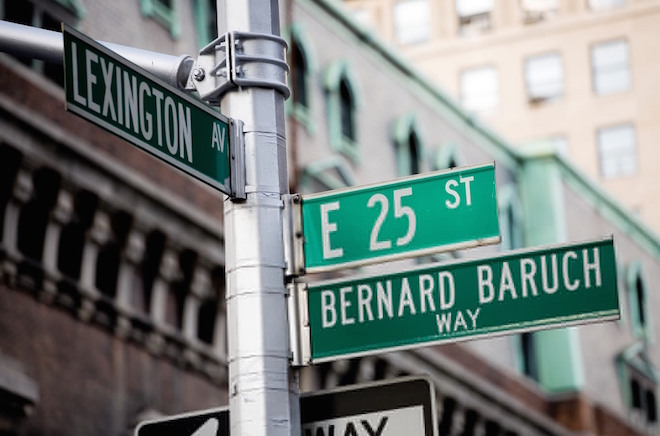
Baruch’s Zicklin School of Business has been the way to social mobility for generations of hard-working strivers
‘OUR STUDENTS ARE INCREDIBLY DETERMINED STRIVERS’
Administrators at Baruch say they are strategic about ensuring that students get the proper support and services they need to help them make the jump from being low-income to the middle or upper-middle class. “We look at our students as incredibly determined strivers. Many of our students come from diverse, first generation and or lower socioeconomic backgrounds, so a lot of our services go above and beyond in helping them make the transition to the workplace,” says Ellen Stein, the acting director of the Starr Career Development Center.
For example, the Starr Center holds internship workshops one to two times a month to educate students about how to obtain a paid or unpaid position. The school organizes three major career fairs for students that each attract upwards of 70 employers, and as many as 1,000 students. The school offers up such niche plays as the Financial Leadership Program that provides a select group of finance students with extra coaching and training on corporate valuation, personal branding, communication and body language, among other things.
Beyond that, the career center holds workshops on how to make small talk, dining etiquette, advanced interviewing skills and others that help students feel more comfortable when talking with recruiters, Stein says. In other words, the school understands that part of its mission is to smooth over the rough edges that can come from growing up without the benefit of college-educated parents in nice white-collar jobs.
AVERAGE STARTING SALARIES: $51,410
One of its more unusual events is called Suit Up for Success, where faculty and alumni donate high-quality used business clothes and suits to the career center that students can purchase for between $1 and $10. Students also can borrow business attire if a last-minute opportunity arises to interview with a company visiting campus. “We want to make sure that someone’s socio-economic background doesn’t prohibit them from making a good impression and being successful,” Stein says.
The average starting salary for a Baruch graduate during the 2015-16 academic year was $50,116 and for Zicklin students, it was even slightly higher, in the $51,410 range. “Considering that for many of our student, their entire families only made collectively $40,000, to come out of school with very little debt and making a $50,000 salary is quite a feat,” Stein adds.
Jose Tobon, 23, a senior and finance major at Baruch’s Zicklin School, is another example of a Zicklin success story. He moved to New York five years ago from Columbia speaking barely a word of English, and will be leaving Baruch this spring with a plum job as an investment banker at RBC Capital Markets. He’s lived on his own in New York City since the age of 17, and attended community college to learn English before enrolling at Baruch.
INTERNING AT CITI, GOLDMAN AND RBC
Tobon paid his way through college working as a waiter at various restaurants and catering companies, often working 30 to 40 hours a week while still attending school full-time. He was selected for Zicklin’s Undergraduate Honors Program, and interned at three different banks during his time at Baruch, including Citigroup, Goldman Sachs and RBC. The director of the honors program helped him practice mock interviewing and other skills, enabling him to make a strong impression during interviews.
“When I first came, I was hesitant to communicate to people, but the school and expectations are so high that it really pushed me and forced me to develop language skills,” he says. His mother, who doesn’t speak English, works as a cashier at a bakery in Queens, making around $20,000 a year. He estimates he’ll be making at least four times her salary when he starts his job. “The jump in income is really high,” says Tobon, who now lives on his own, but will be helping his mother pay her rent next year. “I feel great about that.”
DON’T MISS: VILLANOVA TOPS FLAWED BUSINESSWEEK RANKING OF UNDERGRADUATE BUSINESS PROGRAMS or BUSINESS SCHOOLS WITH THE MOST (AND LEAST) FIRST-GENERATION STUDENTS











Questions about this article? Email us or leave a comment below.